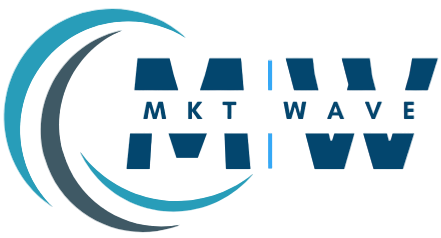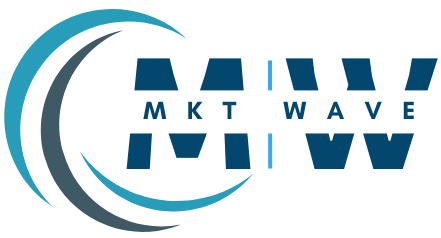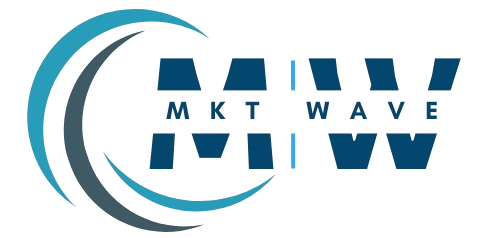As you develop your website’s SEO strategy, you’ll inevitably encounter the topic
of link building. While many focus solely on acquiring external backlinks, a
comprehensive approach requires attention to both internal and external linking
practices. These two types of links serve distinct yet complementary purposes in
boosting your site’s search engine performance. Understanding how to leverage
internal and external links effectively can significantly impact your website’s
visibility, user experience, and overall SEO success. In this article, you’ll explore
the importance of developing a balanced linking strategy and learn actionable
techniques to optimize both internal and external links for maximum SEO benefit.
The Importance of Internal and External Links for SEO
Understanding the impact of external links on SEO is crucial for developing an
effective linking strategy. External links from reputable sources signal to search
engines that your content is valuable and trustworthy, boosting your site’s
authority. Meanwhile, internal links help distribute page authority throughout your
website and guide users to related content.
Implementing SEO link building best practices can significantly enhance your
website’s visibility and rankings. By strategically incorporating both internal and
external links, you create a robust network that search engines can easily crawl
and index. This approach not only improves your site’s structure but also
enhances user experience.
To maximize external links SEO benefits, focus on earning high-quality backlinks
from relevant, authoritative sources. Simultaneously, develop a comprehensive
internal linking strategy to strengthen your site’s architecture and improve
navigation
Understanding Internal Links
Internal links play a crucial role in how links affect website SEO. These hyperlinks
connect different pages within your website, creating a navigation structure that
benefits both users and search engines. By strategically placing internal links, you
can guide visitors through your site’s content while also distributing link equity.
Internal linking helps search engines understand your site’s hierarchy and content
relationships. This understanding contributes to the overall SEO link building best
practices, as it allows search engines to crawl and index your pages more
effectively. Additionally, internal links can boost the authority of key pages,
improving their chances of ranking higher in search results.
When developing your internal vs. external linking strategy, remember that internal
links are fully under your control, making them a powerful tool for optimizing your
site’s SEO performance.
External Links: An SEO Overview
External links play a crucial role in boosting your website’s search engine
optimization (SEO). The impact of external links on SEO is significant, as they
serve as “votes of confidence” from other reputable sites. When implementing
SEO link building best practices, focus on acquiring high-quality, relevant
backlinks from authoritative domains. These external links’ SEO benefits include
improved credibility, increased referral traffic, and enhanced search rankings.
Understanding how links affect website SEO is essential for developing a robust
strategy. While internal links strengthen your site’s structure, external links expand
your online presence and authority. Balancing your internal vs. external linking
strategy is key to maximizing your SEO efforts and achieving long-term success
in search engine results pages.
Do External Links Hurt SEO?
Do External Links Hurt SEO?
Why are External Links Important?
External links play a crucial role in your SEO strategy, significantly impacting your
website’s search engine rankings. The impact of external links on SEO is
multifaceted, contributing to both your site’s authority and relevance in the eyes of
search engines.
When implementing SEO link building best practices, it’s essential to understand
the external links SEO benefits. Quality outbound links signal to search engines
that your content is well-researched and valuable, enhancing your site’s
credibility. Additionally, external links can help search engines better understand
your content’s context and topic.
Understanding how links affect website SEO is key to developing a robust
internal vs. external linking strategy. While internal links guide users through
your site, external links provide additional value by connecting your content to the
broader web ecosystem.
Best Practices for External Link Building
When developing your SEO link building strategy, focus on quality over quantity.
The impact of external links on SEO can be significant, but only if done right. Aim
to acquire backlinks from reputable, authoritative websites in your industry. This
not only boosts your credibility but also improves your search engine rankings.
One of the most effective SEO link building best practices is creating high-quality,
shareable content. By producing valuable resources, you naturally attract external
links. Remember, how links affect website SEO depends largely on their relevance
and authority.
To maximize external links SEO benefits, diversify your link profile. Vary anchor
text and target different pages on your site. Additionally, engage in guest posting,
industry collaborations, and digital PR to build relationships and earn quality
backlinks.
Creating an Effective Internal Linking Structure
To maximize the impact of external links on SEO, it’s crucial to first establish a
solid internal linking framework. Start by conducting a thorough site audit to
identify key pages and content clusters. Then, strategically interlink related pages
to create a logical hierarchy that guides both users and search engines through
your site.
Implement SEO link building best practices by using descriptive anchor text and
placing links naturally within your content. This approach not only enhances user
experience but also distributes link equity effectively across your site. Remember,
a well-structured internal linking strategy complements external linking efforts,
amplifying the overall SEO benefits of external links and positively affecting how
links affect website SEO.
When to Use Outbound Links for SEO
Strategically incorporating external links can significantly boost your SEO efforts.
The impact of external links on SEO is undeniable, as they signal to search
engines that your content is well-researched and authoritative. When citing
reputable sources or referencing industry experts, outbound links add credibility
to your claims. They also provide additional value to your readers, enhancing user
experience.
However, it’s crucial to follow SEO link building best practices. Only link to highquality, relevant websites that complement your content. Overusing external links
can dilute your own authority, so strike a balance. Remember, how links affect
website SEO depends on both quantity and quality. By understanding external
links SEO benefits and implementing a thoughtful internal vs. external linking
strategy, you can improve your site’s search engine rankings and user
engagement.
Outbound Link Best Practices
When implementing an external linking strategy, it’s crucial to understand how
links affect website SEO. Quality outbound links can significantly boost your site’s
credibility and search rankings. To maximize the impact of external links on SEO,
follow these best practices:
Choose Authoritative Sources
Link to reputable, high-authority websites relevant to your content. This
demonstrates your commitment to providing valuable information and can improve
your site’s trustworthiness in search engines’ eyes.
Use Descriptive Anchor Text
Craft anchor text that accurately describes the linked content. This helps search
engines understand the context of the link and can contribute to your SEO link
building best practices.
Balance Internal and External Links
While external links SEO benefits are substantial, maintain a healthy ratio between
internal and external links. This ensures you’re not directing too much traffic away
from your site while still reaping the rewards of a well-rounded linking strategy.
FAQ: Impact of External Links on SEO
How do external links affect website SEO?
External links play a crucial role in boosting your website’s search engine
optimization (SEO). When reputable sites link to your content, it signals to search
engines that your site is trustworthy and authoritative. This impact of external
links on SEO can significantly improve your rankings. However, it’s essential to
focus on quality over quantity. Implementing SEO link building best practices
involves earning links from relevant, high-authority websites in your niche. These
valuable backlinks can drive referral traffic and enhance your site’s credibility.
Understanding the external links SEO benefits is key to developing an effective
internal vs. external linking strategy that optimizes your overall SEO
performance.
Conclusion
As you develop your SEO strategy, remember that both internal and external links
play crucial roles in improving your site’s visibility and authority. By strategically
incorporating internal links, you enhance user experience and help search engines
understand your site structure. Meanwhile, high-quality external links boost your
credibility and expose your content to wider audiences. Strive for a balanced
approach, focusing on creating valuable content that naturally attracts links while
also actively building relationships with reputable sites in your industry. With a
well-executed linking strategy, you’ll be better positioned to climb search engine
rankings and drive sustainable organic traffic to your website.



